Premium Only Content
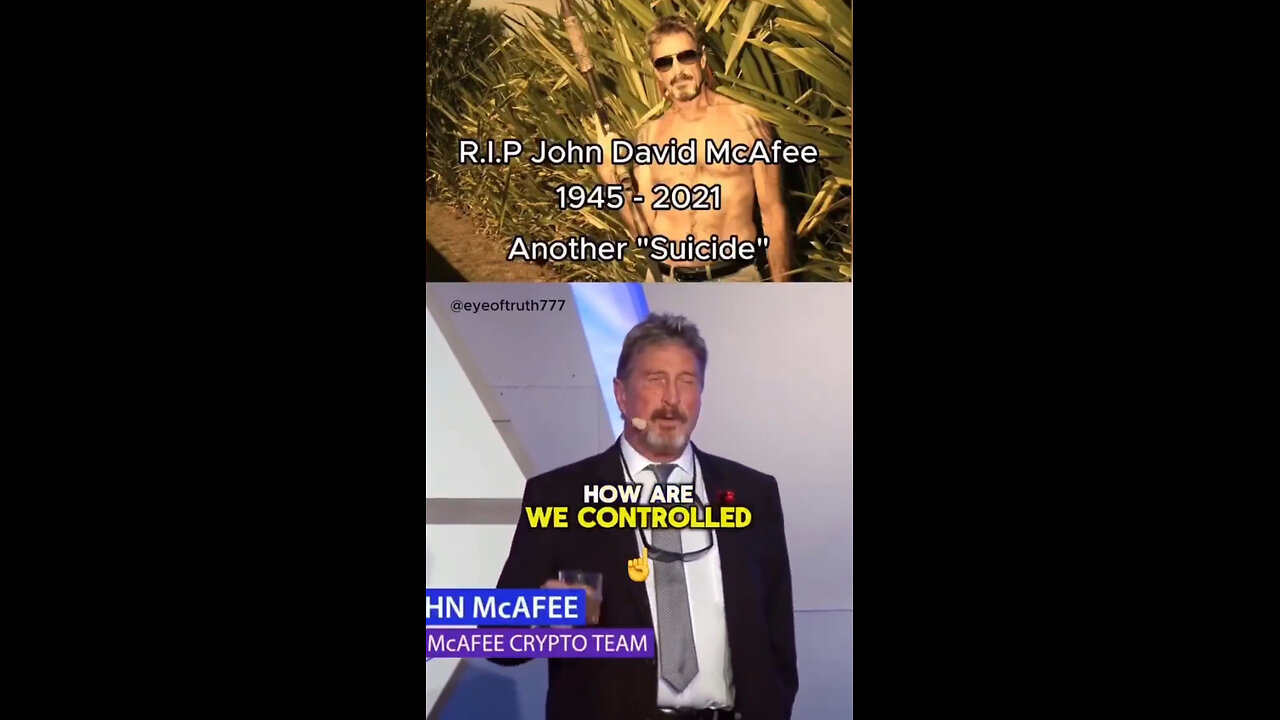
Shackles of the Modern Age: Examining the Power Structure That Binds Us
“True freedom is the ability to walk away at any moment, without your world collapsing.”
— Anonymous
Society champions the idea of personal liberty—our right to shape our destinies and forge our paths. Yet the uneasy truth is that most of us remain tethered to systems we neither designed nor fully control. Below the gleaming promise of technological advancements and career progress lurks a quieter reality: even if we wanted to walk away from our jobs, from our financial obligations, from every burden imposed by modern structures, the cost would be staggering. Our comfort, security, and future would be jeopardized. This article delves into the weight of that dependence, shedding light on an economic web spun by corporations, governments, and global institutions—and how, far too often, it leaves us only the illusion of freedom.
1. The Corporate Grip: Labor as Leverage
1.1. Can You Truly Quit?
The hypothetical test of freedom is simple: Could you tell your boss, “I quit—no two weeks’ notice, no fallback plan, I’m just not coming back”? For most, the answer is a resigned, “Not without serious consequences.”
• Financial Shock: Rent, mortgages, student debt, healthcare, and essentials like food all hinge on steady income. Severing that cord threatens one’s quality of life almost immediately.
• Social Status and Identity: Work isn’t just a paycheck; it’s deeply woven into our identity. Abandoning a role can alienate individuals from peer groups, professional networks, and future prospects.
1.2. Structural Dependencies
It’s not that a single employer has ultimate power; rather, we exist in a broader matrix:
• Debt Systems: From credit card balances to auto loans, debt locks individuals into a cycle of continuous labor. Missed payments lead to penalties, legal action, or plummeting credit—further limiting choices.
• Social Services Tied to Employment: In many places, healthcare and benefits are accessed primarily through jobs. This arrangement tightens the noose; quitting risks losing medical coverage and other essential safety nets.
2. Economic Mastery from Above: The Monetary Machine
2.1. Printing the Future
We speak of “money” as though it’s a static resource, but governments and financial institutions can manipulate its supply at will:
• Monetary Expansion and Contraction: When central authorities inject new currency into circulation or set interest rates, they alter the value of everyone’s savings. Decisions made in closed-door policy meetings ripple out to every home.
• Inflation and Deflation as Quiet Control: A small shift in inflation can erode purchasing power over time, forcing people to earn more just to stay afloat. Deflation, though less common in modern economies, can crush small businesses and individuals under debt they can’t repay.
2.2. The Boundaries of Trade
If money is subject to overarching policy, so too are our choices in how we spend it:
• Sanctions and Restricted Markets: Political tensions can shutter entire trade avenues. For instance, purchasing goods from certain regions may be blocked or heavily regulated.
• Digital Monitoring: As commerce moves online and cash becomes less common, every transaction leaves a trail. Authorities and corporations can monitor where your money goes, shaping your options and discouraging “unapproved” activities.
3. Are We Slaves? Language vs. Reality
3.1. The Loaded Term
Referring to modern citizens as “slaves” may seem extreme. Traditional chattel slavery was brutal and direct in ways that differ profoundly from our current social frameworks. Yet there’s a conceptual parallel:
• Freedom as a Spectrum: Absolute liberty—complete self-determination without external constraints—is almost non-existent. The question is not whether constraints exist, but how deeply they define our lives.
• Economic Chains: The impetus for labor is often necessity rather than choice. Obligations, debts, and limited alternatives make continued participation in the system almost unavoidable.
3.2. Dressed-Up Servitude
Where direct chains once suppressed entire populations, modern structures employ subtler mechanisms:
• Contracts and Fine Print: We sign away rights in exchange for wages or services (like clicking “I agree” on endless user agreements), rarely grasping the ramifications until it’s too late.
• The Perpetual Carrot: Promotions, bonuses, or promises of a comfortable retirement keep us striving within the system rather than challenging it—trading short-term gains for deeper entrenchment.
4. The Illusion of Choice: From Corporate Chains to National Policies
4.1. Technological Leverage
Corporations offer tools that amplify our reach: smartphones, social media platforms, and streaming services. But these conveniences come with trade-offs:
• Data Harvesting: Our habits, preferences, and networks become mapped out and monetized, feeding back into corporate strategies that manipulate consumer behavior.
• Digital Ecosystems: Subscriptions for music, movies, or productivity software create ecosystems where leaving becomes inconvenient or expensive—yet another subtle chain.
4.2. Influence Over Consumption
Advertising and brand power shape public perception:
• Cultural Reinforcement: Certain brands become status symbols, tying identity to product loyalty. Opting out of brand-centric culture can lead to social exclusion.
• Engineered Dependency: Regularly updated devices and planned obsolescence ensure repeated spending and reliance, forcing perpetual re-entry into the buying cycle.
5. The Mythic Dream of Economic Freedom
5.1. Historical and Modern Escapes
Individuals have tried to break from these webs. Some adopt off-grid lifestyles, forming tight-knit communities that rely minimally on standardized currency. Others venture into alternative systems like crypto-bartering or local exchange networks.
• Success Stories and Caveats: While these pockets of independence can blossom, they often face legal obstacles, such as zoning laws or licensing, and risk isolation from mainstream amenities.
5.2. Paths to Greater Autonomy
Short of retreating from society entirely, there are incremental steps:
• Financial Literacy: The more you comprehend about compound interest, investments, and money mechanics, the less susceptible you become to manipulative debt and policy changes.
• Diversified Income Streams: Independent contracting, entrepreneurship, and shared economies can lessen reliance on a single employer.
• Community Building: By cultivating local support systems—food co-ops, shared childcare, or community workshops—people can reduce dependency on corporate solutions.
6. The Paradox: Achieving Liberation in a Rigged Structure
Despite the systemic tilt, the dream of economic freedom endures:
• Collective Awakening: If enough individuals recognize and question the existing structure, cultural momentum could spark reforms—demands for universal basic services, fair lending practices, or increased transparency in government spending.
• Conscious Consumerism: Mindful shopping and financial habits signal that people prefer ethical, community-based transactions over exploitative corporate practices.
• Digital Decentralization: Advances in decentralized finance and peer-to-peer technologies offer glimpses of how money could flow without centralized gatekeepers, albeit with new risks.
Conclusion: The Silent Chains We All Wear
We live in an age of paradox: never have there been more opportunities, yet rarely have we felt so enmeshed in obligations we can’t easily dismiss. The question isn’t whether we’re entirely free—most of us know we’re not. The real question is whether we can recognize the subtle threads pulling at us and begin disentangling, thread by thread.
Economic freedom is more than a slogan. It’s the power to shape our destinies without crippling fear of financial collapse. It’s the capacity to explore new ventures, speak truth to power, or simply walk away when a job no longer serves us—without sacrificing health, dignity, or livelihood.
Until we address the underlying system that channels wealth upward and leaves everyday people trapped in perpetual trade-offs, the dream of freedom will remain just that—a tantalizing illusion. But awareness is the first step toward action. If enough of us question the rules and push for change, perhaps one day “I quit” won’t signal the start of personal ruin, but the dawn of genuine liberty.
-
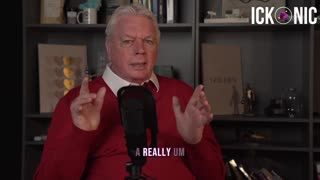 4:55
4:55
FragmentsOfTruth
2 days agoBeyond the Simulation: The Awakening to True Self
138 -
 1:47:46
1:47:46
SpartakusLIVE
11 hours agoThe Master RIZZLER has entered the building, the 95% REJOICE
29.9K2 -
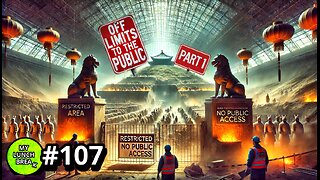 29:53
29:53
MYLUNCHBREAK CHANNEL PAGE
1 day agoOff Limits to the Public - Pt 1
89.9K112 -
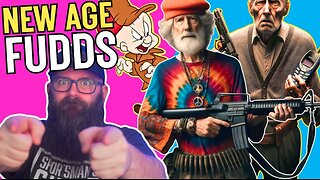 16:03
16:03
Tundra Tactical
13 hours ago $16.92 earnedNew Age Gun Fudds
130K20 -
 8:22
8:22
Russell Brand
18 hours agoThey want this to happen
211K447 -
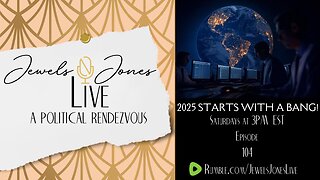 2:06:43
2:06:43
Jewels Jones Live ®
1 day ago2025 STARTS WITH A BANG! | A Political Rendezvous - Ep. 104
118K41 -
 4:20:41
4:20:41
Viss
18 hours ago🔴LIVE - PUBG Duo Dominance Viss w/ Spartakus
93K12 -
 10:15:14
10:15:14
MDGgamin
21 hours ago🔴LIVE-Escape From Tarkov - 1st Saturday of 2025!!!! - #RumbleTakeover
74K2 -
 3:54:19
3:54:19
SpartakusLIVE
17 hours agoPUBG Duos w/ Viss || Tactical Strategy & HARDCORE Gameplay
83.4K1 -
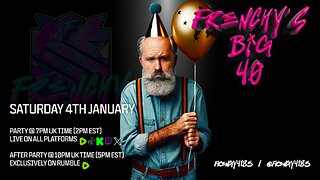 5:54:54
5:54:54
FRENCHY4185
18 hours agoFRENCHY'S BIRTHDAY BASH !!! THE BIG 40 !!!
91.3K3